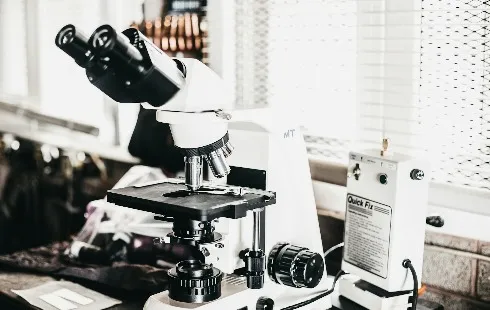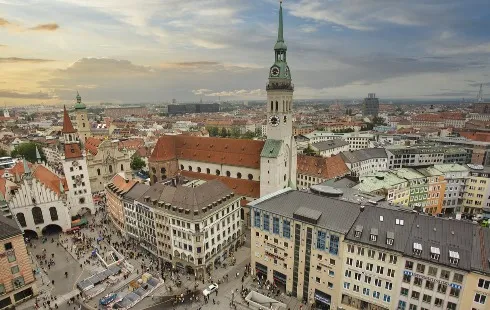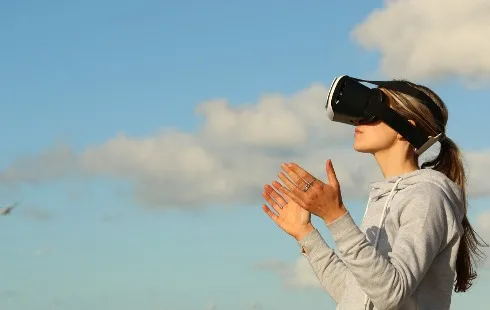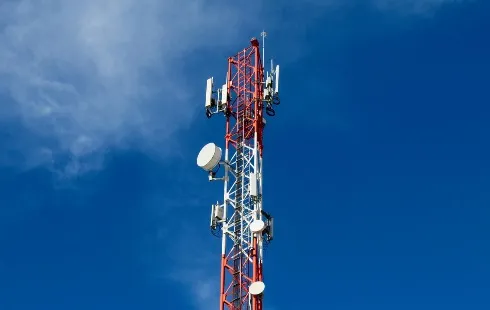
Gonadorelin Peptide: A Gateway to Understanding Endocrine Dynamics
Section: Science
The millennium's first global pandemic, Covid-19, swept from country to country leaving chaos in its wake. Now, as the second wave ominously bears down upon us, we need to bravely address the economic consequences of over-caution and indecision, in addition to the more obvious health-related effects. Identifying common sense routes to a more sustainable and healthy response than that employed for the first wave, is our only realistic option. To do otherwise, would offer nothing more than a glimpse into a future bereft of economic stability and social stagnation.
While the virus is not as deadly as initially feared, it nevertheless should be taken seriously and its spread impeded or halted at every conceivable opportunity. Caution is advised that whatever activities may achieve this end, must be done so with an eye on the economic impact and the oft dismissed aspect of cultural preservation, which has so far eluded political attempts to suppress the virus spread. This pandemic most definitely should be handled without damaging decades of economic growth and social/cultural development and practice. Now is not the time for politicians to cling to power, knowing that a brave move may very well end their career. Heavy-handed government tactics risk immunising people to any future more serious biological threats. The approach we now need, is one of calm, educated measure, proportionate to the danger this pandemic actually presents, not what we fear it presents.
To this end, we need to appraise the situation with an open mind and not let fear dictate the discourse. To segment the areas of risk, one first needs to recognise how the virus is spreading. Research is suggesting that this is done predominantly from respiratory droplets emanating from infected people coughing, sneezing, or talking in proximity to others. That is the first practical problem which needs to be addressed, limiting the virus' ability to exit the host and enter another.
Secondly, we need to look at where this virus propagation is happening the most. Clearly it is in places where people accumulate and thus increase the chances of contamination of the air we breath and the surfaces we touch. Can this be mitigated without infringing on our right to go about our business in public places or visit venues of our choice, or is lockdown the only option. Too many, with politicians leading the charge, opt for the draconian approach. How many calling for lockdown will lose their business or suffer severe financial hardship as a result. Not many I would wager.
What if, as a society, we limited the ability of this virus to move from one person to another, and reduced the contamination of closed public spaces; would this slow the virus spread and help prevent further damaging political reactions, which have so far arguably caused more harm that good? Is this not a vital and valid question?
The answers may be easier than we are led to believe. Already, people seem to be conscious of the need to cover ones' mouth and nose in public spaces. The wearing of facial masks, although uncomfortable for some, has generally been accepted by the public as a cheap and effective way to limit the spread of many viruses, not just Covid-19. This method also has the added benefit of not destroying businesses, exposing our economy to undue stresses, or stunting our children's education and social lives. Which is more than can be said for governmental responses to the pandemic up to now, most of which has had a record-breaking destabilising effect across many areas of life. While we plunge our countries into near-hysterical panic mode, in Asia, it is business as usual. Tokyo alone has avoided lockdown and kept one of the most populous regions on the planet ticking-by ever so efficiently. Their virus stats are incredible; all this achieved with little government measures put in place.
Additionally, if we can limit the airborne spread of the virus, then that is a great start to bringing everyday life back to normal. We would need to consider the segmentation of public spaces and how best to prepare these areas to mitigate risk, while allowing businesses to operate as normal as possible so as to stave off economic stagnation. This is a lot more tricky than it may sound. Social distancing is an option. It does appear to be effective in reducing infection rates, but unlike the wearing of masks, it has an economic penalty to it. Less customers on a premises, means less revenue. Some things are unavoidable, and as much as business owners would like a full house, we all need to make sensible readjustments to life and expectations during this crisis. Social-distancing does have a cost, but it need not be a devastating one. In fact, if exercised judiciously, the damage could be minimal, while still proving effective.
What is more damaging, is when the government mandates the total closing to the public of businesses, out of an abundance of caution. However, if it were possible to make these spaces safer, would that not then allow businesses to reopen, and critically, to stay open? Uncertainty about future government restrictions is as much a danger to our economy as the actual effects of lockdown. Indeed, studies are showing that loss of human life while following a herd immunity strategy, would actually result in less deaths that that which has already occurred with a lockdown.
One solution is to take suitable public spaces and sterilise them. Couple that with compulsory mask-wearing and social-distancing, then we have a practical solution to help limit the spread of the virus, without damaging both our economy and our culture. Businesses now have a set of mechanisms to help them stay open and customer confidence increases if the public understand that a public space is regularly sterilised. The risk of virus cross-contamination is greatly reduced and the economic damage caused by a full lockdown is largely mitigated.
This in turn begs the question, is it possible to sterilise a public space? Is this an action worth implementing?
Employing an army of cleaners with covid-killing disinfectant and realms of sanitation wipes, is one solution, albeit totally impractical and not very effective. The virus is easily left alive on surfaces which have not been thoroughly cleaned. Alternatively and more realistically, could we not beat this virus using the very mechanism it is using against us, aersol transportation. If we were to effectively sterilise the air in a confined space, is there evidence that this works to kill the virus?
As it turns out, yes there is. In fact, companies like Du Pont have for decades sterilised their production environments using such methods. To employ such a technique for a confined public space, would potentially be a solution to any one enclosed area being a source of multiple infections. Periodically killing the virus on surfaces which people may touch, would in all probability lessen infection rates caused by direct contact with that surface. Crucially, it is this process of lessening possible contact rates which can actually starve the disease of its ability to replicate in large enough numbers to keep spreading.
So what solutions are there for an aerosol system of disinfectant: it would need to be cheap, safe, quick and scalable. How does one even go about releasing an aerosol disinfectant into a confined space. Clearly this disinfecting would need to be performed when no humans are present.
One such company has stepped forward to break the mould and tackle this virus head on. The Berliner Ensemble, using the type of aerosol solution just described, have managed to completely disinfect their entire concert hall between showings. That is no small feat. They claim, using products from a local German company called Amo Air, that they were able to mobilise cheap portable devices, which very quickly disinfected the entire public seating area, within a few hours. They claim the system works well, killing the vast majority of the virus and other pathogens on surfaces tested.
Which again begs the question, why are our trains not using this system? Our buses? If not, then why not? Why close sports halls if we can disinfect the surfaces between usage? Why are we told by the government to hide from the world in our homes, when solutions are actually being employed by private companies, which in unison with mask-wearing and social-distancing, are proving very capable of keeping reinfection rates low and the economy ticking over? These are valid questions which are not being addressed.
As the people of Germany, the rest of Europe, and indeed the world, watch Western government after Western government clamber to provide solutions which will keep the politicians in their jobs, despite the social devastation, one has to wonder why private companies can somehow create solutions which work. Would it be so hard to use aerosol technology to clean the enclosed public spaces the governments are trying to prevent us from frequenting? The benefits are clear. We keep our jobs, our way of life and watch as the country quickly gets back on its feet once this pandemic finally ends. As it currently stands though, the lockdown response appears to have caused near catastrophic damage across various sectors, with recovery taking a lot longer than it should. With a common-sense solution involving wearing masks, social-distancing and sterlisation of confined public spaces, we can avoid the economic and cultural devastation which is currently threatening us.
Photo by Edwin Hooper

Section: Science

Section: Health

Section: Arts

Section: Health

Section: Science

Section: News

Section: News

Section: Health Insurance

Section: Health

Section: News
Health Insurance in Germany is compulsory and sometimes complicated, not to mention expensive. As an expat, you are required to navigate this landscape within weeks of arriving, so check our FAQ on PKV. For our guide on resources and access to agents who can give you a competitive quote, try our PKV Cost comparison tool.
Germany is famous for its medical expertise and extensive number of hospitals and clinics. See this comprehensive directory of hospitals and clinics across the country, complete with links to their websites, addresses, contact info, and specializations/services.
The granddaughter of Claire Zachanassian makes a return to Güllen, the impoverished hometown of her late grandmother, for a performance. Having never fully engaged with her grandmother's past, she is eager to finally discover Güllen. The sound of her last name stirs the entire town into action.



No comments yet. Be the first to comment!